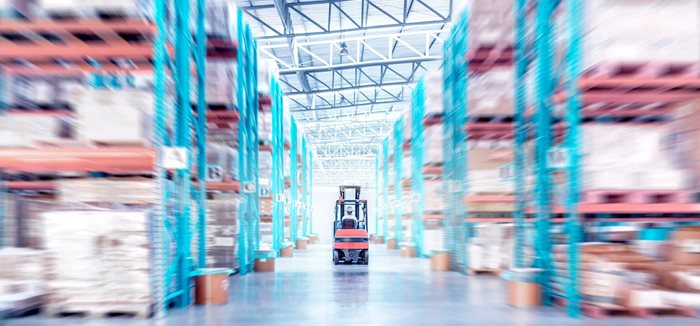
Prebo Digital, a verified Amazon Ads partner, simplifies Amazon's fee structure and sheds some light on the questions you may have. Let’s dive into the fees and some information about what Amazon offers to South African sellers.
Amazon's fee structure for marketplace sellers always includes two fundamental components: selling plan fees and referral fees. No matter which fulfillment method you opt for, these two fees are integral aspects of your overall expenses when selling on Amazon. Additional fees you need to take into consideration are fulfillment fees if you use any of their fulfillment options and storage fees.
Below, we help you understand the fees and how they impact your business, and provide valuable insights for sellers seeking to maximise their profits in the Amazon marketplace.
There are two types of selling plans available on Amazon: individual seller and professional seller.
On the professional plan, you pay a monthly fee and get access to useful tools and features to help you maximise your growth on Amazon. These include creating a brand store for businesses with registered trademarks, A+ Content, Amazon Ads, Amazon Analytics and Amazon Vine. Professional seller accounts also have access to broader category options compared to individual seller accounts. You can list more products in different categories, giving you more choices and opportunities for what to sell on Amazon.
For professional plans, sellers can expect to pay R400 per month, but with the launch in South Africa confirmed, sellers get a massively discounted rate of R1 per month on the professional plan until 31 December 2024.
An individual seller account is best suited for businesses that sell fewer than 40 units a month. There are limited selling tools, like options to advertise your products, and limited access to categories to choose from for selling a product. For less than 40 sales a month, you can expect to pay R10 per item sold to Amazon.
Amazon offers three shipping options for sellers: fulfillment by Amazon (FBA), easy ship option (ES) and self ship. Each of these options has its own applicable shipping fees.
With FBA, sellers keep their products in Amazon's centres. Amazon handles order fulfillment, packing, shipping, and customer service. Sellers are required to pay fulfillment fees to Amazon for every item sold. The fulfillment fee starts at R27 (excluding VAT) per unit and varies by the size of your product.
To get an idea of what your specific product’s fulfillment fees will be, you can use this helpful calculator.
If you opt for FBA, there are also monthly storage fees payable. These fees are assessed monthly and depend on the volume of storage space that is used by the seller. Inventory that has been in the fulfillment centre for more than a year will incur a long-term storage fee.
Also, take note that sellers are responsible for shipping their products to Amazon's fulfillment centres by personally covering the cost of shipping their inventory to the designated Amazon facility.

Unique to South Africa, the Amazon easy ship programme offers sellers on Amazon a convenient service similar to the Makro fulfillment service. Sellers pack the order and can have their packaged orders collected and shipped through an associate from Amazon's designated courier, ensuring a quick and predictable delivery experience for customers. This service also includes up-to-date shipment tracking information.
Amazon's easy ship programme imposes fees for parcel shipments based on the product's value and weight. For products valued up to R500 (VAT included) with an actual weight of less than 32kg, there is a flat fulfillment fee of R20 (VAT excluded).
For boxes with at least one product starting at R500 (VAT included), the fulfillment fee varies based on weight, with fees ranging from R43 for products weighing 0-250 grams to R99 for products weighing 20,001-30,000 grams.
An additional fee of R5 per kilogram applies to these weight-based handling fees. The calculation considers either the actual weight or volumetric weight, whichever is greater, and rounds up to the nearest weight range. The maximum parcel length is 175 cm, with a maximum girth of 419 cm, and fees are subject to change. The examples in the Amazon easy ship guide illustrate how fees are calculated, considering the product's value, actual weight, and volumetric weight, with fees presented as VAT-excluded amounts.
Amazon sellers can also choose to use the self ship option, which means that as a seller, you store, package, and ship all your products. The cost for shipping your order through a third party carrier of your choice will differ from carrier to carrier.
Referral fees are a percentage of the item's selling price, and fees vary by product category. For every item sold, you’ll pay a percentage of the total price or a minimum amount to Amazon, whichever is greater. These fees start from 3% or min R10 and go up to 15%.

Similar to Amazon, Takealot charges a success fee (referral fee in Amazon terms) based on the product category, however, Takealot's fees tend to be slightly higher (up to 18% compared to Amazon’s 15%), making Amazon's fees potentially more competitive for some product categories.
Takealot also charges a monthly seller fee of R400, fulfillment fees and storage fees, depending on your business model. You can use this Takealot fee estimator to calculate your estimated revenue.
Makro operates on a different model, where sellers do not pay a monthly, listing or fulfillment fee for items up to 40kg or 80cm x 70cm x 60cm. There is an undisclosed percentage of order item value referral fee applicable based on the category you’re selling in.
Bobshop (previously bidorbuy) doesn’t charge a monthly fee to sell on the platform but they also charge success fees based on product categories. These fees range from 2.5% (cars) to 8.75%. If you list a product in the classifieds format or list in some service-related categories, there is no referral fee, only a listing fee will then be applicable. Other fees unique to Bobshop that you need to be aware of are bobPay transfer fees and enhancement fees (if you want to promote your listing).
The table below goes into more comparative detail:
When you choose to sell on Amazon’s marketplace, it is important to incorporate all fees into your pricing strategy. Research your competitors and set competitive prices that factor in Amazon's fees while still offering value to your customers. At Prebo Digital, we include the profitability analysis and pricing calculations in your launch plan.
Regularly monitoring your sales and adjusting your pricing strategy is needed to maintain profitability. If you are incorporating Amazon ads, make sure your pricing accounts for both advertising fees and referral fees.
Prebo Digital is a verified Amazon Ads partner, and has been growing businesses on Amazon in other countries for more than four years. We’ve learned many lessons along the way that have made this onboarding process stress-free and structured for our clients.
We are ready to help you succeed on Amazon. Let’s get you started with the following:
If you have a registered trademark, Prebo Digital can also assist you with designing your storefront and creating A+ content to make your listings stand out.
